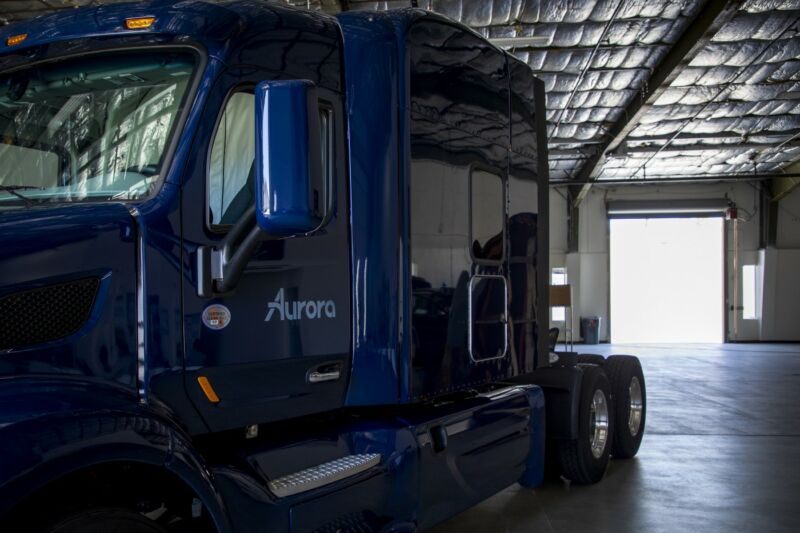Why some self-driving startups reject Google’s “moonshot” approach

Enlarge / Aurora said Monday that it would focus on testing self-driving trucks in the Dallas area. (credit: Aurora)
Progress on self-driving technology has been slower than many people expected just a few years ago. Google's Waymo was aiming to launch a fully driverless taxi service by the end of 2018 but missed its deadline. GM's Cruise abandoned plans to launch a commercial service in 2019. Tesla has repeatedly fallen short of Elon Musk's optimistic timelines for delivering fully self-driving technology.
This isn't a crisis for these companies. They have plenty of cash and can keep working on the problem as long as they need to. But it is a big challenge for some of their competitors: independent self-driving startups that rely on venture capital to stay afloat. As the timeline for self-driving technology has stretched out, fundraising has gotten more difficult.
"Given the amount of resources required to develop an autonomous vehicle, it never made sense to have dozens of companies doing the same thing," said Sam Abuelsamid, an analyst at Guidehouse Insights. "There was always going to be a shake-out."
Read 37 remaining paragraphs | Comments